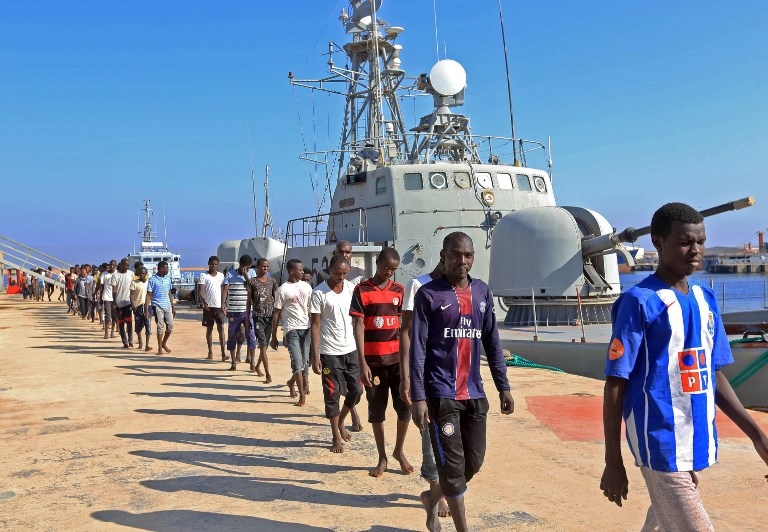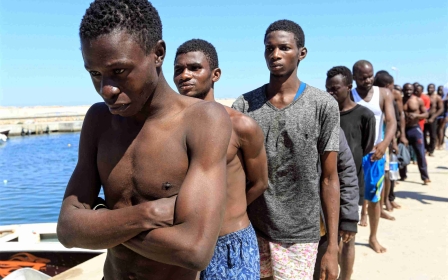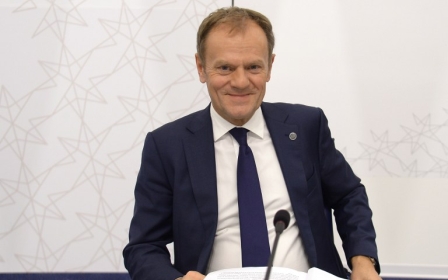Libyan coastguard intercepts more than 3,000 migrants in past week

Libya's coastguard rescued more than 3,000 migrants aiming to cross the Mediterranean to Europe in the past week, while Italy picked up another 2,000 in recent days, officials and reports said on Sunday.
Though the numbers attempting the dangerous journey have dropped off significantly in recent months, these new rescues indicate the route is still very much open.
The tally was the highest reported out of Libya for a one-week period since a dramatic fall in the number of migrants trying to reach Europe began in mid-July.
Until the past week, Italy, the closest and main destination, had recorded 6,500 arrivals since July, barely 15 percent of the figure for the same period in the past three years.
Even so, the past week alone saw about 2,000 rescues according to NGOs and media reports.
Italian daily La Stampa on Sunday reported the arrival in Sicily of 589 migrants on a boat chartered by British charity Save the Children, which could not be immediately reached for comment.
A further 200 people were picked up off the Italian island of Lampedusa and the Sicilian coast.
One Irish patrol vessel, the William Butler Yeats, disembarked on Sunday some 550 migrants at the eastern Sicilian port of Augusta as well as three dead bodies, two women and a child, who the Red Cross said was a three-year-old Cameroonian.
Crossings from Libya spiked in 2014, and since last year the North African country has been the main gateway for migrants trying to reach Europe. Some 600,000 have crossed the central Mediterranean since 2014.
The drop in migrant crossings between Libya and Italy since July is largely attributed to armed groups around the smuggling hubs of Sabratha and Zawiya blocking departures.
Most of the coastguard operations were staged off those two cities, navy spokesman General Ayoub Kacem said in a statement.
Still, some boats have been leaving from the area, where a number of different smuggling groups operate. Smugglers generally pack migrants into flimsy inflatable boats that hope to be picked up by international vessels and taken to Italy.
Earlier in July, Italian Interior Minister Marco Minniti proposed a pact to combat human trafficking during a visit to Tripoli to meet mayors of cities affected by the scourge.
Italian Prime Minister Paolo Gentiloni on Sunday welcomed the overall recent falloff in arrivals.
"The Italian experience of the past few months shows what can be done. There are fewer arrivals and also fewer deaths at sea," said Gentiloni, despite the spike over the past week.
Also, the EU and Italy have been providing support for Libya's coastguards to enable them to intercept more migrants, a strategy that has been criticised by human rights groups.
Activists say migrants should not be sent back to Libya, where they may be subject to a wide range of abuses.
Stay informed with MEE's newsletters
Sign up to get the latest alerts, insights and analysis, starting with Turkey Unpacked
Middle East Eye delivers independent and unrivalled coverage and analysis of the Middle East, North Africa and beyond. To learn more about republishing this content and the associated fees, please fill out this form. More about MEE can be found here.




